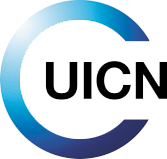054 - Módulo de instrumentos jurídicos para la crisis climática
054 - Módulo de instrumentos jurídicos para la crisis climática
RECONOCIENDO los riesgos que la crisis climática plantea para las generaciones presentes y futura y la biodiversidad terrestre y marina;
RECORDANDO el compromiso de la UICN con la mitigación y adaptación a los efectos del cambio climático mediante la creación de un Grupo de Tareas sobre el Cambio Climático;
OBSERVANDO las graves consecuencias de la crisis climática sobre la diversidad natural, los ecosistemas, la biodiversidad, la geodiversidad, el patrimonio natural, los procesos naturales, así como las economías, las sociedades y la paz mundial;
RECONOCIENDO la dificultad de la acción unificada y coordinada para mitigar eficazmente el impacto del cambio climático;
OBSERVANDO los órganos creados en virtud de tratados y el derecho consuetudinario existentes que piden a los gobiernos que reduzcan adecuadamente las emisiones de carbono;
RECORDANDO la Declaración mundial de la UICN acerca del estado de derecho en materia ambiental, que establece que debe servir de fundamento jurídico para promover un futuro sostenible para todos; y
RECORDANDO el objetivo de la UICN de reducir los riesgos e impactos del cambio climático aplicando los métodos de mitigación y adaptación al mismo previstos en el Programa de la UICN 2021-2024;
1. PIDE al Director General y a la Comisión Mundial de Derecho Ambiental (CMDA) que creen un módulo de instrumentos de acción climática para ayudar a los agentes nacionales, subnacionales y locales interesados, según proceda, a llevar a cabo actividades pertinentes de mitigación y adaptación al clima, para que los Estados Miembros puedan determinar los que más se adecúen a su estructura de gobernanza, ordenamiento jurídico y ecosistema, a fin de que sirvan de base a las políticas y la legislación pertinentes;
2. RECOMIENDA que se refuercen las sinergias y las interrelaciones entre las bases de datos de derecho ambiental, como ECOLEX y el Portal de Información de las Naciones Unidas sobre los Acuerdos Ambientales Multilaterales, y que se aumenten los recursos en relación con el cambio climático; y
3. ALIENTA a los Estados Miembros de la UICN a que, cuando esté disponible, utilice el módulo de instrumentos relativos a la crisis climática como base para redactar su propia legislación.


